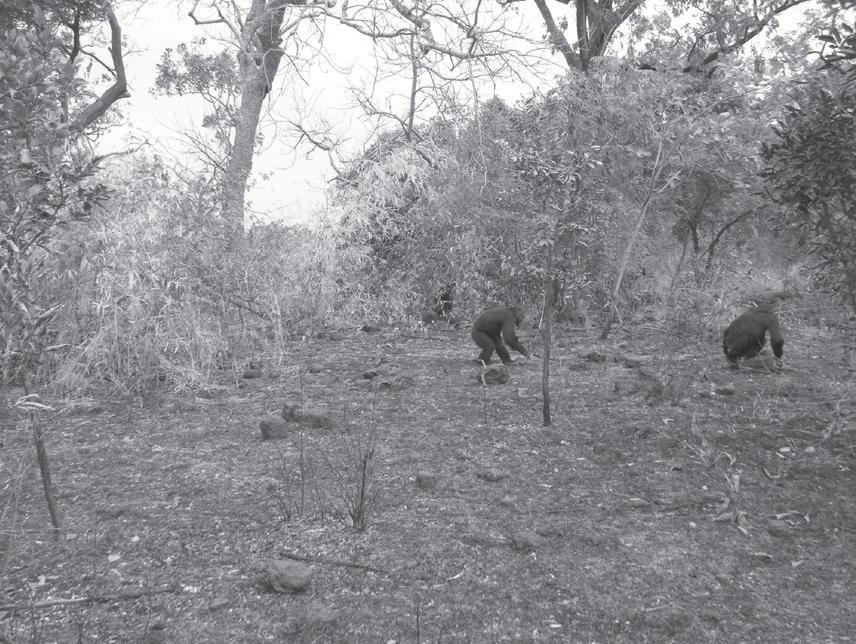Stacy Marie Lindshield
Other projects
26 Mar 2015
Assessment of Mercury Contamination in the Drinking Water Supply of Senegal’s Endangered Chimpanzee Population
We are investigating relationships between habitat disturbance and savanna chimpanzee foraging behaviour, in order to improve chimpanzee conservation and management policy in Senegal.

Fongoli chimpanzees travel through a recently burned area.
Only 500 West African chimpanzees (Pan troglodytes verus) are estimated to be alive today in Senegal. Although human population density has been historically low in south-eastern Senegal, the section of the country where chimpanzees range, a recent increase in human population size and habitat loss has raised serious concerns over the future of chimpanzees. In order to protect this small population, accurate information about chimpanzee behaviour must be available to conservationists and land managers. Behaviours that are intrinsically linked to survival and reproduction, such as foraging (the process of searching for and eating food) and habitat use, are of special concern to conservation scientists, especially where anthropogenic (human-made) disturbances pose a major threat to chimpanzees. Solving human-chimpanzee conflicts in Senegal is difficult without a clear understanding of the relationships between foraging, habitat disturbance, and savanna ecology. The process underlying this conflict is competition over land resources. However, chimpanzee foraging responses to anthropogenic disturbances are poorly understood in the savanna environments that characterize Senegal.
We approach this problem by examining the relationship between foraging behaviour and anthropogenic disturbance within a ‘community’ of wild chimpanzees at Fongoli, Senegal. The chimpanzees of Fongoli are the only savanna-dwelling community that allows researchers to observe their daily lives, and while Fongoli chimpanzees are accustomed to the presence of attentive researchers, they exhibit fear responses to almost everyone else. This unique situation enables us to answer foraging questions relevant to savanna chimpanzee conservation. Specifically, we will examine associations between Fongoli chimpanzee foraging decisions, such as food selection and feeding rate, and spatio-temporal proximity to human activities (e.g., farming, gold mining).
The goal of our approach is to identify important habitats within the Fongoli chimpanzee home range, and better understand the pressures that lead chimpanzees to forage in close proximity to humans. Furthermore, we aim to collaborate with other Senegalese conservation organizations to extend our work to other savanna chimpanzee communities, where our general findings can be adapted to the environmental conditions at other locales. Our project will improve efforts to manage critical habitats for the endangered West African chimpanzee.